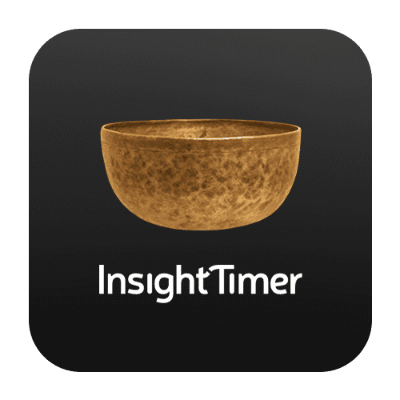Don't quit just yet: Strategies to overcome exhaustion at work (Part 1)
If you are feeling emotionally drained, physically exhausted, and overwhelmed at work, you’re not alone.
Recent studies show that Australian prime-aged workers (between 25 and 55) are reporting the greatest burnout since the pandemic hit. Half of the workers in this age group feel exhausted at work, and many are experiencing a lack of motivation, difficulty concentrating, and physical symptoms such as headaches, muscle tension, and insomnia.
33% are thinking of quitting their job!
I have been working in the corporate sector for 25 years and I can confirm that I am witnessing exactly that. Staff are tired, disengaged, and wanting more satisfaction from their career.
If you're feeling stuck in a job and your personal life and wellbeing are being affected, don't quit just yet.
I am here to share strategies you can use to create a healthier work-life balance without relying on your employer.
Time to take control!

Photo Fernando Brasil / Unsplash
Understanding Stress, Exhaustion at Work & Burnout
Before we dive into strategies, it's essential to understand the difference between stress, exhaustion, and burnout. So here we go:
Stress is typically caused by an event or situation that triggers a response in the body, such as a deadline or an argument with a coworker. It can usually be lowered by mindfulness and other relaxation and psychological methods.
Burnout, on the other hand, is usually caused by prolonged and chronic stress, such as a heavy workload, lack of support, or a toxic work environment.
Exhaustion at work is a symptom of burnout.
Burnout can manifest in several ways:
· Feeling emotionally drained and overwhelmed.
· Reduced performance and productivity.
· Difficulty concentrating or making decisions.
· Chronic fatigue, exhaustion at work.
· Physical symptoms such as headaches, muscle tension, and insomnia.
· A negative and cynical attitude towards work and colleagues.
· Withdrawal from social interactions.
Do you recognise yourself in these symptoms? If so, be compassionate with yourself. It’s normal, and there are solutions to improve your situation.
Why it matters to improve your situation?
Because you’re not only an employee. You’re also a mum, a friend, a sibling, and people around you need you and love you. And you deserve to feel good! We only have one life, after all.
Even though you might feel stuck and powerless right now, there are steps you can take to feel better despite your job.
So, what can you do to overcome exhaustion at work and prevent burnout? Let's explore some strategies.
The first two strategies are grounded in science-based evidence and research.
When we are thinking about something, our brain processes that information and integrates it with our existing knowledge and memories. The brain processes information by forming neural connections, and factors such as repetition, emotion, and relevance can influence what we retain and how we process information. When we repeatedly think about something, the neural connections associated with that information become stronger, which facilitates its retention.
Just a note on “I’m too old” and “it’s just the way I am”:
Neural pathways are connections between brain cells that form when we learn or experience something new. These pathways can be strengthened by repetition, practice, or emotional significance. Neuroplasticity refers to the brain's ability to change and adapt, which means that we can modify our neural pathways by reinforcing new thoughts or behaviour over time, creating new connections, and weakening old ones.
Bottom line, you are NEVER too old to change.
"You are never too old to set another goal or to dream a new dream"
- C.S. Lewis
So I want to show you how to think on purpose and choose the right thoughts to feed your neural connections and make your brain stronger and more adaptable.

Photo credit Anete Luzina on Unsplash
Strategy #1
Boost and showcase your personal values
Knowing your personal values is essential to creating a healthy work-life balance. When you have a clear understanding of what matters most to you, you can make decisions that align with those values and bring meaning and purpose to your life.
For example, if spending time with family is a top priority, you might choose to switch you phone off after work, . If you value personal growth and development, you might seek out opportunities for training and advancement in your current position.
Honouring your values…
1. Helps you make better decisions,
2. Helps communicate easily by explaining why you want something,
3. Creates better relationships by becoming consistent,
4. Helps navigate challenges by understanding what matters and what to do about it.
To identify your personal values and goals, ask yourself some questions:
1. What is most important to you in life? What truly matters?
2. What motivates you to get up in the morning?
3. What are your top three priorities?
4. What’s worth fighting for?
5. What are the qualities that you most admire in others?
Strategy #2
Nail your life Vision and Design powerful Goals
A Life Vision is the understanding of who we want to become. It gives you a sense of direction.
A cool way to design your life vision is through a future-self meditation.
Goals are your steps to get to your Life Vision and to bring it to life.
Why it matters to have a life vision and goals?
Because we need awareness on the ultimate Work-Life balance recipe that we need, and steps to design and implement it ourselves. It is the best way to get where we want to go.
Why can’t we rely on our employer to provide us with work-life balance?
Because the recipe is different for everyone. You are unique, and your vision & goals are unique too.
Vision and goals:
1. provide direction & focus;
2. are motivating;
3. help you understand yourself better;
4. boost your self-confidence by giving you a sense of accomplishment;
5. give you purpose;
6. Help establish priorities, problem-solving, and making decisions.
Studies show that written goals are 42% more likely to be achieved!!
How do personal goals help lower stress? Let me give you a few examples:
1. Physical health goals: more energy at work, more endorphins, more positive;
2. Relationships goals: less on your mind at work;
3. Financial goals: finance in order: less worry and less emphasis on “I need this job”;
4. Personal Growth goals: sense of pride, focus on something other than work.
Not sure how to set goals?
In conclusion, if you want to reduce work-related stress, you can start by gaining clarity on who you are and what you want by listing your values and designing your life vision and your goals.
So sit back, relax, and get creative my friend!

Remember that an accredited Life Coach is professionally trained to help you go through changes in the easiest, most effective way.
We’re here to help! And I'll leave you with this powerful quote from Abraham Lincoln:
"The best way to predict your future is to create it."
References:
World Health Organization (WHO): https://www.who.int/
Australian Institute of Health and Wellfare (AIHW): https://www.aihw.gov.au/

About the Author

Hi! I’m Sophie, and I’m so glad you’re here.
I help people build resilience to prevent burnout. I help them rebuild sustainable energy, habits, and mindset - one small, practical shift at a time.
We all have the power to improve our life and to be happier and healthier in both work and life.
I’m here to help you do exactly that.

Recent Articles - All Categories
Thoughts and ideas for busy, brilliant humans
Join my mailing list - every edition delivers:
• Quick mindset shifts + wellbeing practices everyone can use today.
• Insights and tools leaders and HR can bring into the workplace.
• Updates and news that will make you happier and healthier.

I respectfully acknowledge the Traditional Owners of the land on which I coach, collaborate and grow, the Gimuy Walubara Yidinji and Yirrganydji Peoples. I acknowledge and pay respect to Aboriginal and Torres Strait Islander Peoples as the world’s oldest living culture and embrace their continued connection to land, waters and community. I pay my deepest respect to all Aboriginal and Torres Strait Islander Elders past and present.
I also recognise, value and celebrate diversity and act in the spirit of inclusion.



